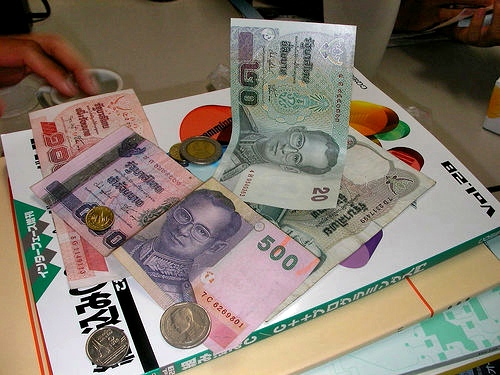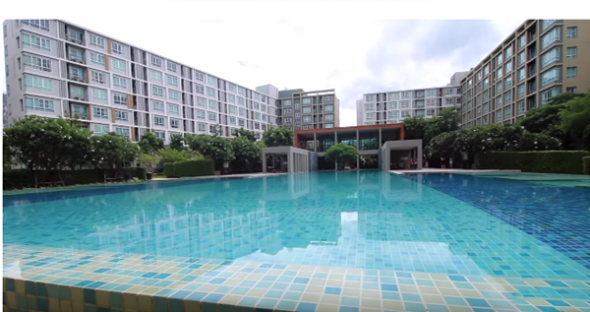
With the coronavirus in Thailand now causing stress for many non-Thais who are being forced to stand in long lines at the Thai Immigration Department to renew visas and permissions to stay, some people are thinking about the convenience of having permanent residency in Thailand.
After all, with that residency, you would no longer have to renew visas every year. Nor would you have to stand in line with other non-Thais if another crisis was to hit the south east Asian country just in order to be able to stay.
Getting permanent residency in Thailand is not particularly simple, however. Nor is it available to anyone that wants it.
Instead, there are strict requirements anyone wanting to apply to become a Thai permanent resident must meet.
If you are one of those non-Thais who have lived in the Land of Smiles for years, and have decided you are likely to live in the country for long into the future though, this is what you will need in order to make your life easier and more stable.

The cost of permanent residency in Thailand
It makes sense to first look at the cost of permanent residency in Thailand as, if it is outside your ability to pay, there is no point considering an application any further.
Currently, the cost of a permanent residency application is 7,600 baht.
Should your application be accepted and your permanent residency granted, however, the final fee will be between 100,000 to 200,000 baht. This depends on the category in which you applied and your personal circumstances.
Considering the application fee for American citizenship, for instance, is only $1,170, the cost of Thai permanent residency is quite high.

Only 100 people per country per year
One of the first things you need to know is that permanent residency in Thailand is only processed once a year, and often during just three to five months a year. As this changes annually, however, your best bet is to contact the Immigration Department and find out when the next round of applications will be accepted.
Along with this comes the ‘only 100 people per country will be awarded permanent residency in Thailand every year’ restriction.
That means, if you are from a country like the United States or the United Kingdom, countries with tens of thousands of their citizens currently living in Thailand, you may have to wait a few years before your permanent residency application is approved.
If you are from a smaller country like Luxembourg, Austria or Nepal, however, it may be much easier for you.
There are also 100 other slots made available for people who are stateless.

Qualifications in order to be able to apply for permanent residency in Thailand
- You must have held a non-immigrant visa for 3 years without a break in its issuance.
- You must hold that non-immigrant visa at the time you apply for your permanent residency.
- . You must earn 30,000 baht monthly income (for those married to a Thai spouse for at least 5 years) or have an 80,000 baht monthly income if you are single. Remember too, if you are married to a non-Thai and both of you want to apply for permanent residency in Thailand, you will both have to apply separately and both have to meet the specific requirements set out by the government.
- You must fit into one of these categories in order to have your application accepted:
a. Be investing between 3–10 million baht in Thailand.
b. Fall into a business or working category set forth by the Thai government.
c. If you provide expert or educational support in Thailand, you are also eligible to apply.
d. Provide support either to a Thai family or to a non-Thai that has permanent residency already.
e. Other categories that are set out by Thai Immigration at their discretion.

Documents required when applying for permanent residency in Thailand
There is no point listing any documents that may be required when you submit your application as these are different depending on the category through which you will be applying.
You can find out the current requirements by contacting the Royal Thai Police Immigration Bureau.
It is safe to say, however, there will be many documents and you will have to provide many signed copies of each in order to have your application accepted into the next round of the process.
Also expect to have to submit a number of recent photographs (usually at least 12 photographs, and all taken within the previous 3 months).
Your fingerprints will also be taken so that your background can be checked for a criminal record. If you do have one, you will be denied permanent residency in Thailand.

Processing your application for permanent residency in Thailand
The processing of your application, and a possible acceptance and granting of a permanent residency certificate, can take anything from several months to up to a year and a half.
During this time, you will be expected to keep up with renewals of your current non-immigrant visa as, if you let it lapse, your application for permanent residency would be deemed nul and void.
You will be contacted by the Royal Thai Immigration Commission for an interview if they deem you are a likely candidate for permanent residency. During the interview, you will be asked to answer 10 questions in Thai. These questions are asked in written Thai and you will be expected to answer them in Thai. If you cannot read Thai, however, the interviewer is permitted to read them to you.
Once your interview has taken place, you will then have to wait several months more. You will be contacted by the Royal Thai Immigration Commission again once your application has been reviewed, whether it is a final acceptance or a denial.

The benefits of holding permanent residency in Thailand
- You will not have to apply for an annual renewal of a visa as, once granted, your permanent resident is permanent. In fact, the only thing you have to do to keep it is to make sure you do not break any laws and, if you do leave the country, be sure to not spend more than 365 days outside Thailand. If you do, your permanent residency will be revoked. Be aware, though, you must apply for a re-entry permit every time you leave Thailand.
- You can now buy a condo without having to have money for its purchased transferred into Thailand from a foreign bank account.
- You can open your own business and become a director.
- A permanent residency is not a work permit but, with one, you can apply for a work permit much more easily.
- You will be given a permanent residency book (blue book) and an alien registration book (red book). This makes it much easier dealing with all kinds of official things in Thailand.
- If you would like to apply for a mortgage in Thailand, this becomes much easier once you have permanent residency.



